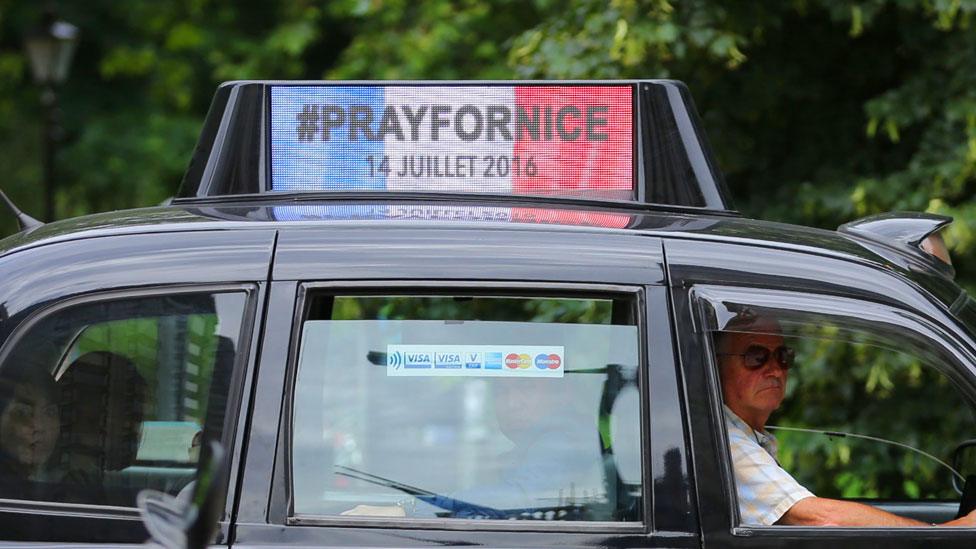UK terror attacks: What we know about disrupted plots
- Published
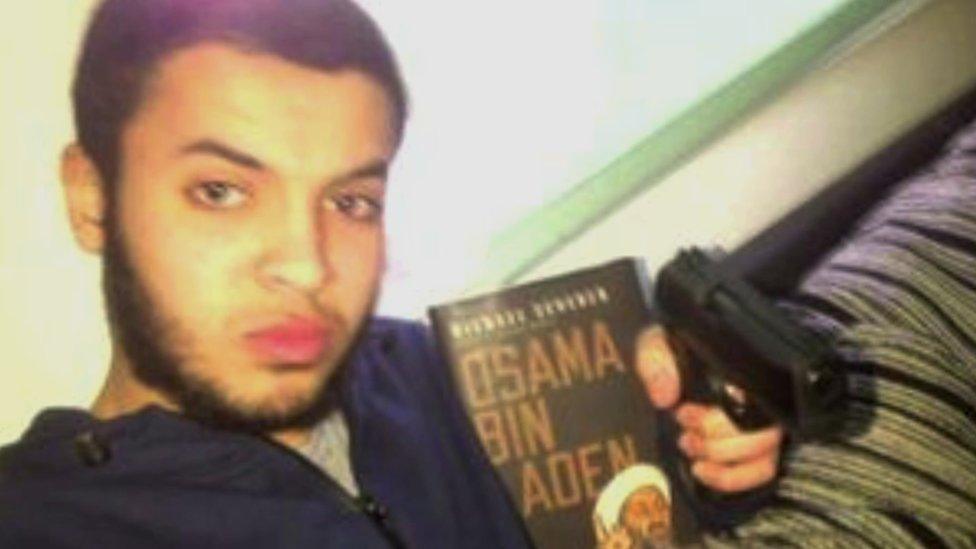
Tarik Hassane: One of the most recent and dangerous plotters
Assistant commissioner Mark Rowley, of the Metropolitan Police, the UK's most senior counter-terrorism police officer, has used a speech to make a renewed call for public help to counter threats.
He says there have been 13 disrupted terror plots since 2013.
It's a complex figure because there haven't been 13 specific trials before the courts in which individuals have been shown to be involved in attack planning. That doesn't, however, mean the figure is wrong - far from it.
It's all to do with the difference between criminal evidence, leading to a conviction, and secret intelligence that the police and others can use to stop something from happening.
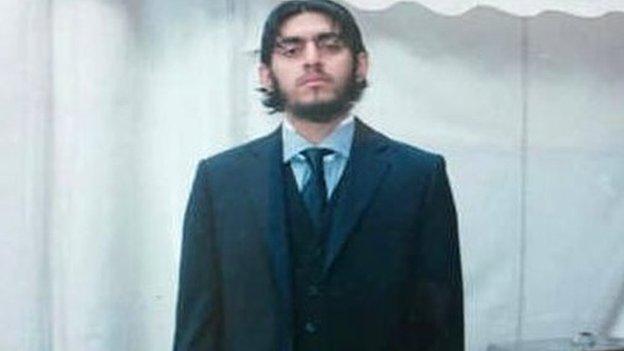
Nadir Syed used encrypted online chats to share gory videos from so-called Islamic State
There are prosecutions where it's really obvious what has been going on, but every now and then I and colleagues see cases where there's a whiff of something spooky in the background that we can't get to the bottom of.
Those cases are usually the ones where it starts to become clear that the security services thought they were on to something but the secret intelligence assessments - perhaps from a hacked device or credible informant - couldn't be supported in open court by evidence.
Sometimes the police intervene early in a case out of fear of losing track of a target. In these cases, the conviction on a lesser offence isn't regarded as a failure - it's still a "disruption" - and that's sometimes the most they can hope for.
So, in the absence of an official list, here are some of the cases that have most concerned the police in recent years:
Nadir Syed, 23, of west London, was convicted of preparing to carry out an attack in 2014 inspired by the self-styled Islamic State group, which evidence suggested would have targeted a poppy seller or someone else linked to Remembrance Sunday.
The same autumn saw the arrest of two students from west London who were later jailed for plotting to kill police or soldiers in a drive-by shooting using a moped.
We also saw the conviction of a delivery driver from Luton who planned to run over a member of the US military outside one of the two air bases used by its air force in Suffolk.
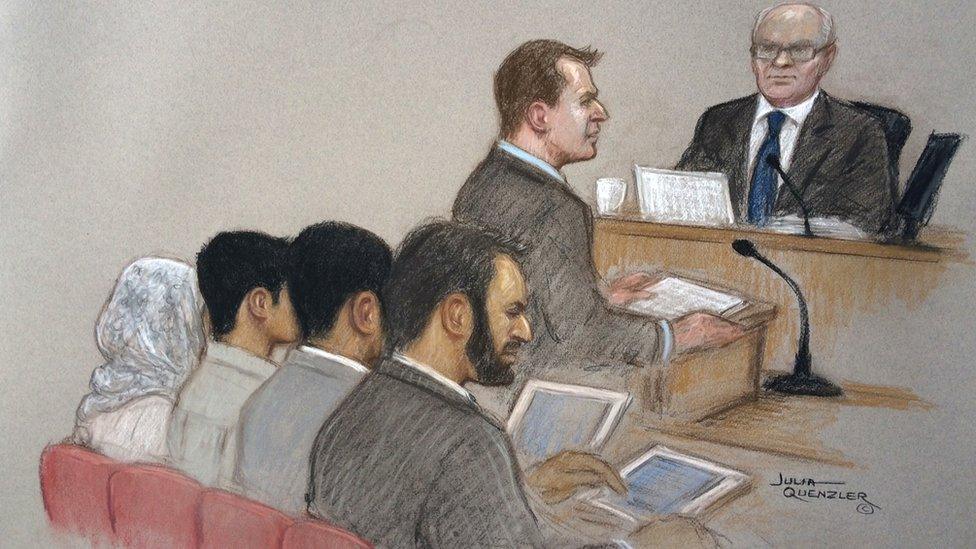
Boy S, who cannot be identified, was sentenced to life in prison at Manchester Crown Court.
One of the most serious recent cases led to Britain's youngest ever convicted terrorist - "Boy S", from Blackburn. When aged 14, he had attempted to incite a man in Australia to kill soldiers.
In March 2015, a teenager who planned to behead a British soldier was jailed in a case that highlighted the speed of his radicalisation.
Other less complex cases included a 19-year-old jailed for grooming a vulnerable young man to kill UK soldiers and a returnee from Syria whom the Crown Prosecution service said was "preparing or planning an act of terrorism", external.
Three operations involved intelligence that indicated either substantial research and collection of materials required for bomb-making - or testing of a potential device.
A further two were complex operations in which the suspects talked about high-profile targets.
And all of these cases exclude the activity of members of Northern Ireland paramilitary groups - the threat from those individuals is officially classed as "severe".
And, separately, there is increasing concern from police in some parts of the country about the rise of extreme far-right/neo-Nazi grooming for violence.

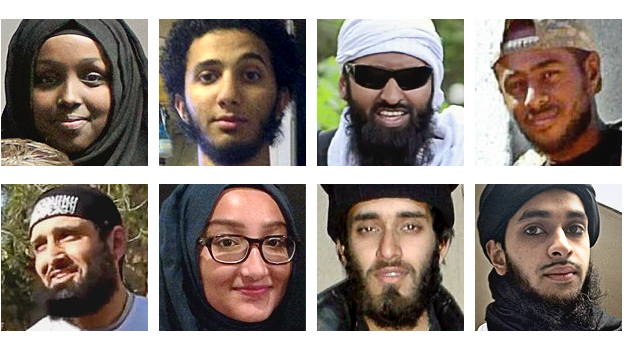
The stories of the men and women who have gone to Syria to fight and die
The ones who have come home
Who has ended up in prison so far
- Published6 March 2017
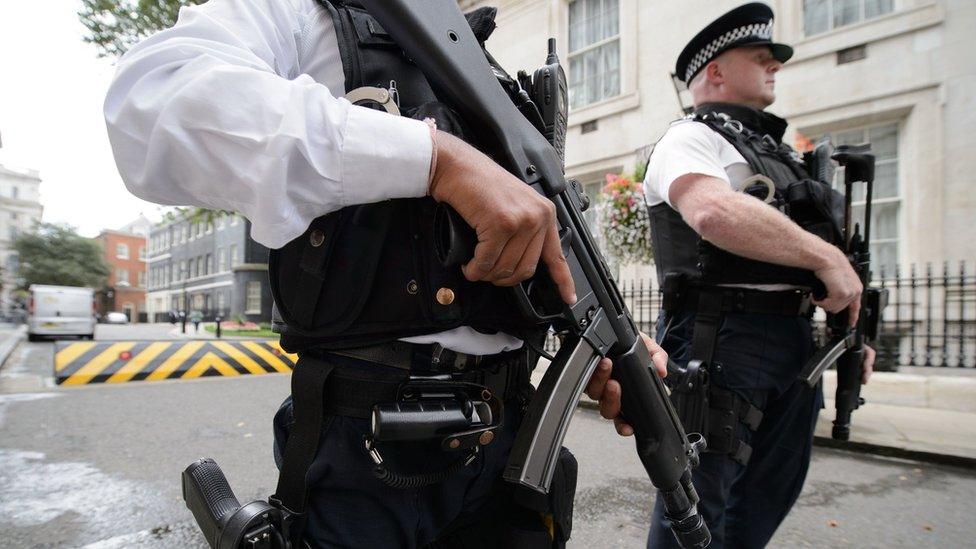
- Published8 December 2016
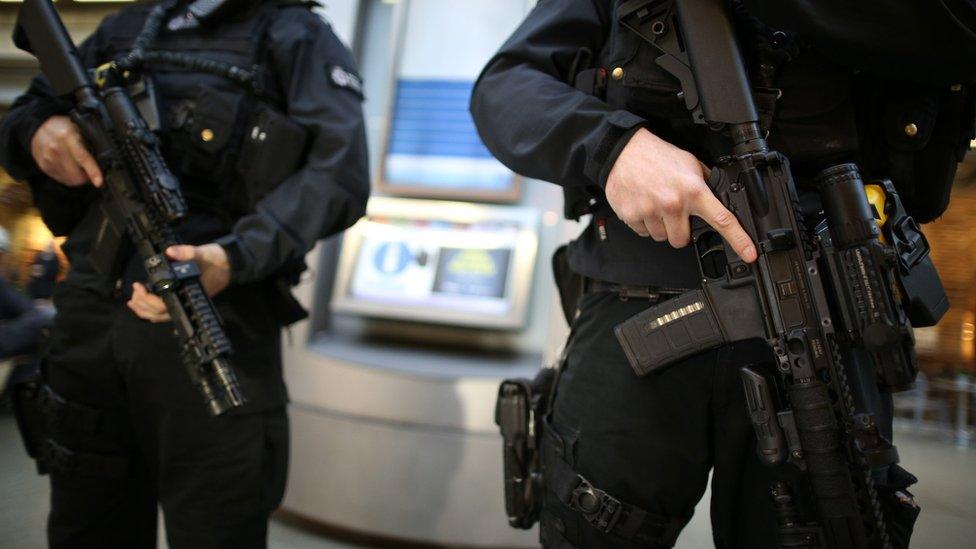
- Published17 July 2016
